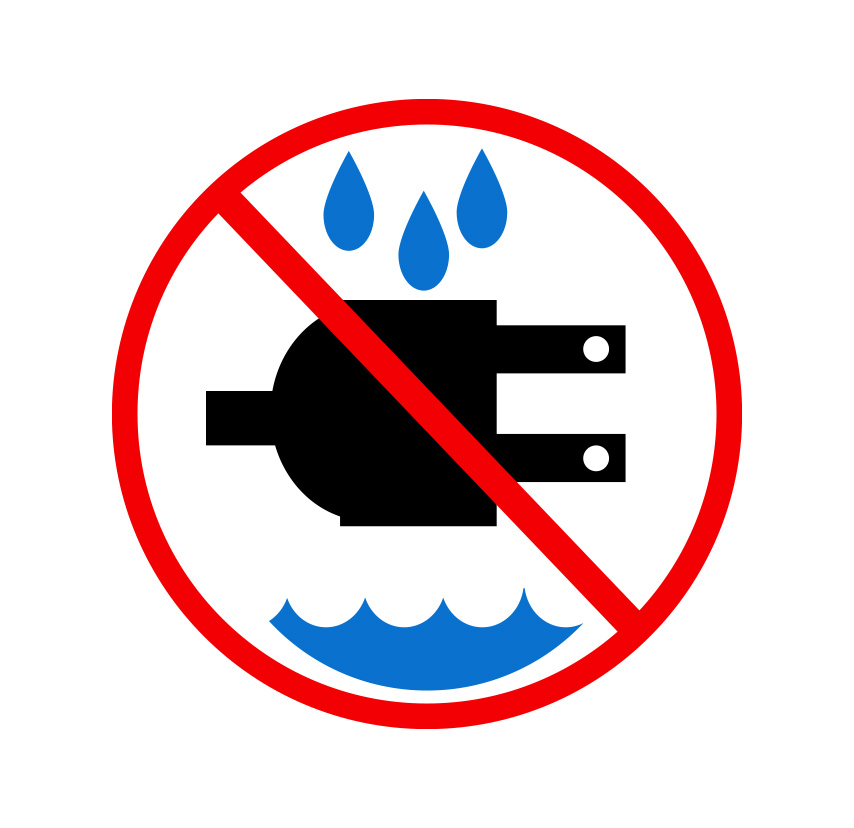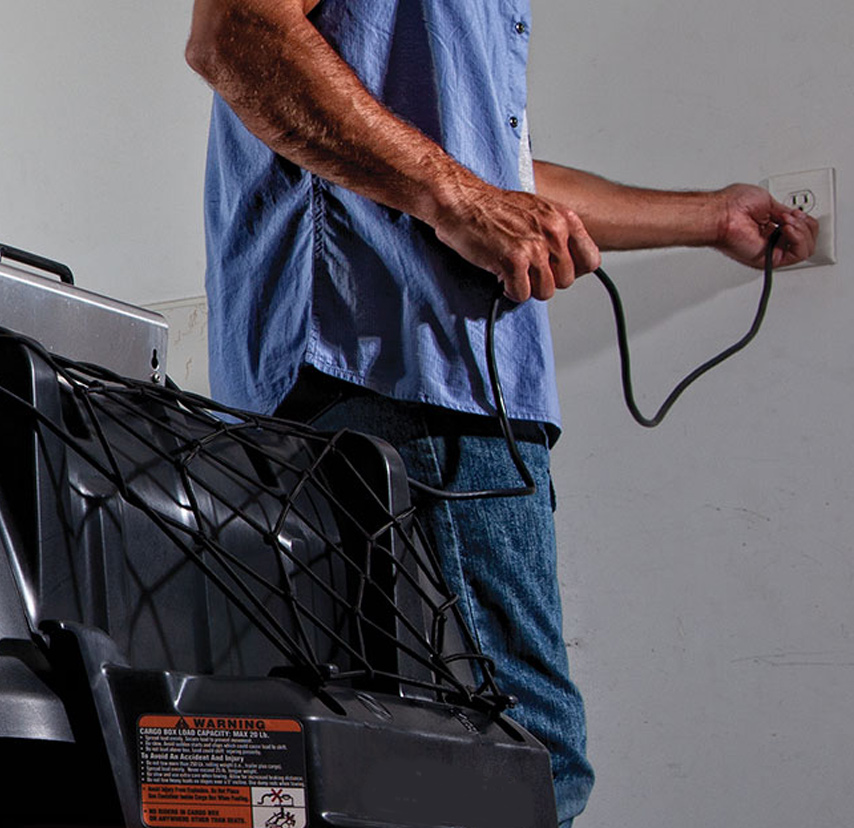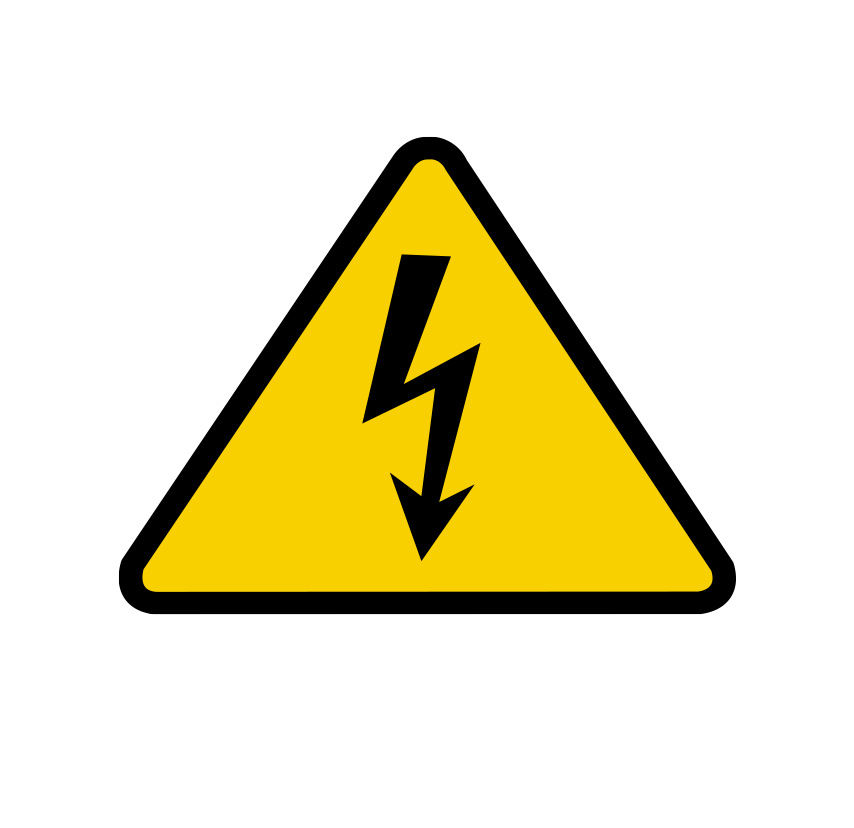Battery Charger Safety
- Only charge the battery with the charger supplied or recommended by the manufacturer. Other types of chargers may cause the battery to burst, resulting in fire, personal injury, or property damage.
- Never connect the charger to an AC voltage that differs from the stated voltage on the charger. A Ground Fault Circuit Interrupter (GFCI) protection should be provided on the circuit(s) or outlet(s) to be used with the charger. For an extra measure of safety, use a receptacle with built-in GFCI protection.
- An extension cord should not be used unless absolutely necessary. Make sure the cord is UL listed and heavy enough to carry the current draw of the charger. When in doubt use a heavier gauge cord (i.e. smaller gauge number, heavier cord). Use of an undersized cord could result in a loss of power, overheating and risk of fire, electric shock, or electrocution.
- Do not use multiple extensions cords.
- Make sure the charger power cord and extension cord are checked periodically for damage such as deterioration, cuts or cracks in the insulation. Do not use a damaged cord. If damaged, replace extension cord or charger immediately.
- Do not abuse cords. Never pull on the power or extension cords to remove from the outlet or the charger. Never carry the charger by the power cord. Keep cords away from heat, oil, water, sharp edges, and moving objects. Always grasp the plug when disconnecting a cord.
- Never modify a plug, cord, or outlet in any way.
- Keep the battery charger in a cool and dry area. Never charge battery in the rain or wet conditions.

Battery Safety
- Do not expose the battery to fire or temperatures over 176°F (80°C). Doing so could cause the battery to explode.
- Handle batteries with care. Do not wear conductive materials such as loose jewelry, rings, or bracelets which could short circuit the battery causing personal injury, fire, or damage to the battery.
- Do not attempt to charge a cracked or damaged battery. Do not use a damaged or modified battery. Doing so could result in a fire, personal injury, or property damage.
- Do not handle a battery with a crack or leak. Wear disposable protective gloves.
-
If battery fluid contacts skin:
- Immediately wash the area with soap and water.
- Neutralize the battery fluid with a mild acid (lemon juice, vinegar etc.)
- Seek immediate medical attention.
-
If battery fluid gets in the eyes:
- Immediately flush eyes with clean water for at least 15 minutes.
- Seek immediate medical attention.

Electric Mower Safety
- With an electric mower, a Ground Fault Circuit Interrupter (GFCI) protection should be provided on the circuit(s) or outlet(s) to be used for the lawn mower.
- To prevent electric shock, use the electric mower with a UL, CUL, or ETL listed extension cord set, suitable for outdoor use.
- With an electric mower, organize the task to first cut the area nearest the electrical outlet, then gradually move away. This will minimize chances of running over the power cord and possibly being electrocuted.

